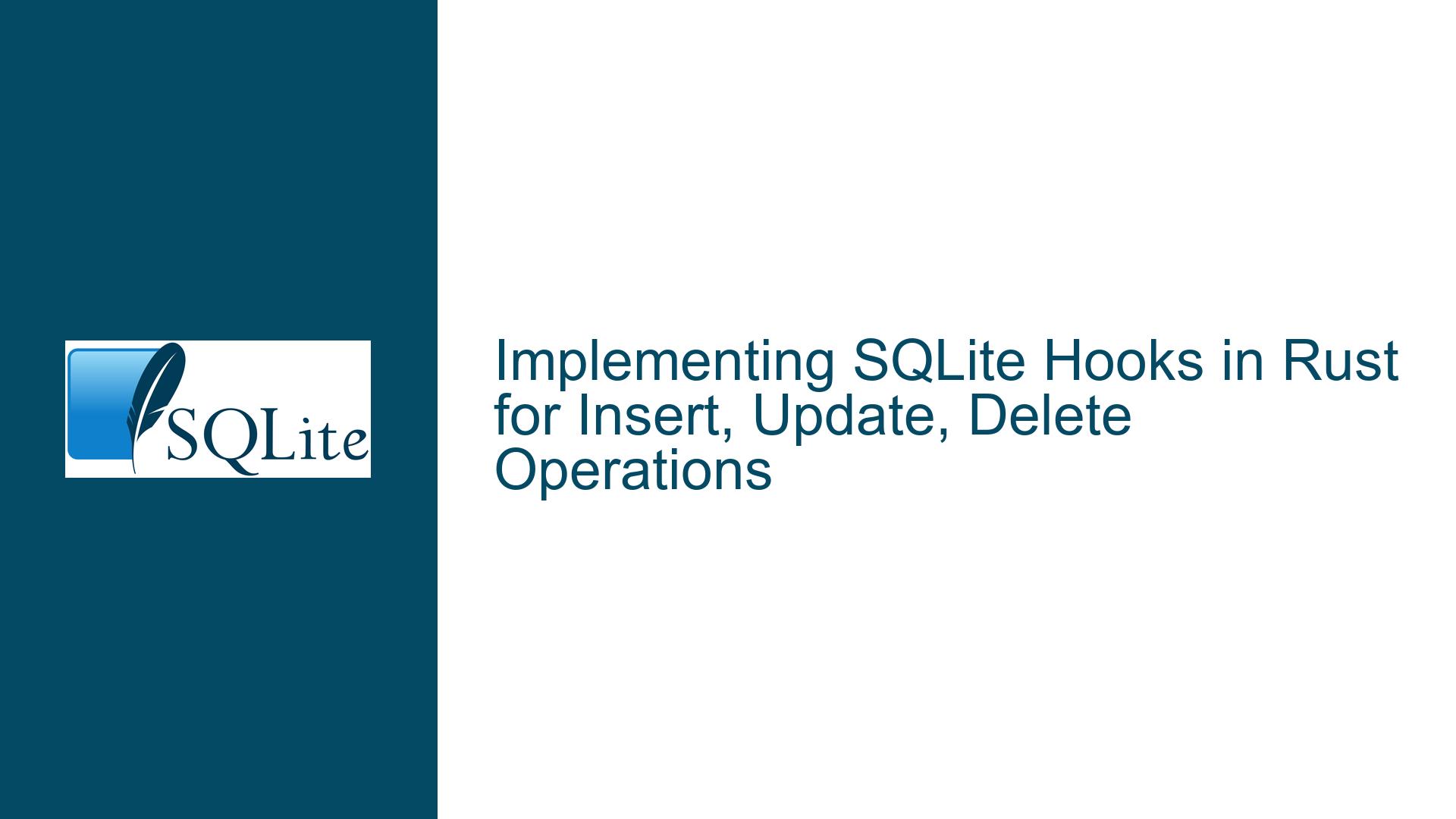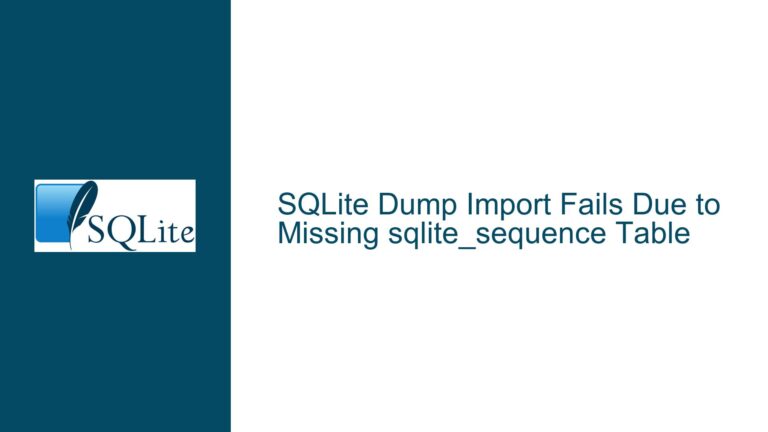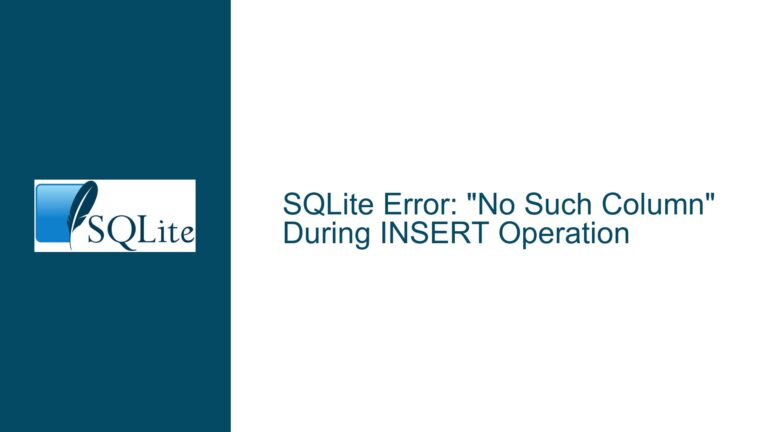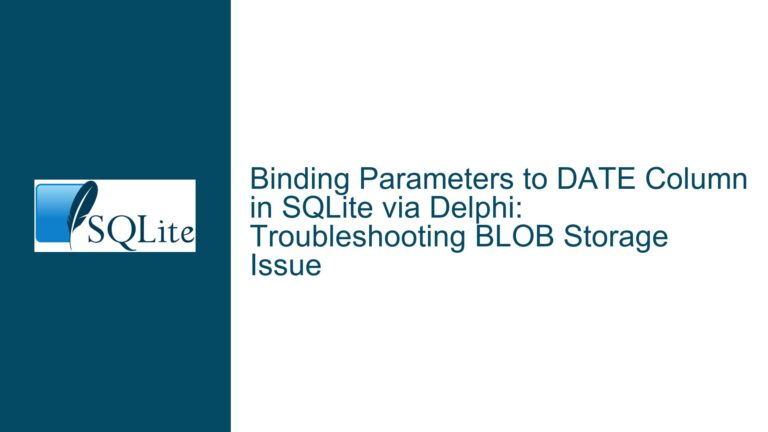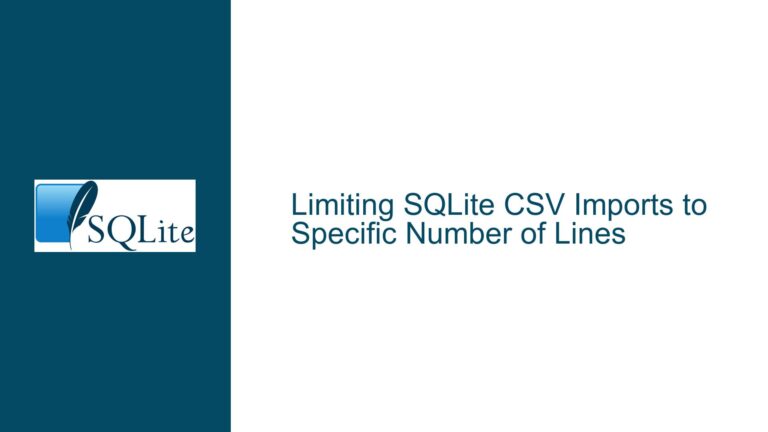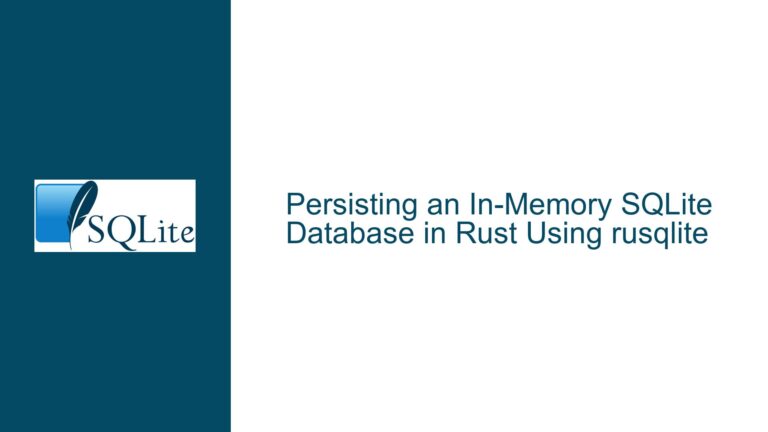Implementing SQLite Hooks in Rust for Insert, Update, Delete Operations
Understanding SQLite Hooks and Rust Integration
SQLite hooks are a powerful feature that allows developers to execute custom code in response to specific database events, such as insert, update, or delete operations. These hooks are particularly useful for logging, auditing, or triggering additional business logic when data changes. However, integrating these hooks into a Rust application requires a deep understanding of both SQLite’s C API and how Rust interacts with it through bindings.
The core issue revolves around the implementation of SQLite hooks in Rust, specifically using the sqlite3_update_hook() function provided by SQLite’s C API. The goal is to print "Hello World!" whenever an insert, update, or delete operation is performed on the SQLite database. The challenge lies in ensuring that the hook is triggered not only when operations are executed directly from Rust but also when they are executed from SQLite itself.
Possible Causes of Hook Execution Failure
The primary cause of the hook not being triggered when operations are executed from SQLite is likely due to the way the Rust binding is implemented. The sqlite3_update_hook() function is designed to work with SQLite’s C API, and its behavior might not be fully encapsulated or correctly exposed through the Rust binding being used. Additionally, the hook might be set up in a way that it only responds to operations initiated from the Rust code and not from SQLite’s internal execution engine.
Another potential cause is the scope and lifetime of the hook function. In Rust, closures and their captured variables have specific lifetimes and scopes. If the closure passed to update_hook does not have the correct lifetime or if it captures variables that are dropped before the hook is triggered, the hook might not function as expected. This is particularly relevant when dealing with thread-local storage and ensuring that the connection and hook remain valid throughout the application’s lifecycle.
Troubleshooting Steps, Solutions & Fixes
To address the issue of the hook not being triggered when operations are executed from SQLite, the following steps can be taken:
Verify Rust Binding Implementation: Ensure that the Rust binding being used correctly exposes the
sqlite3_update_hook()function. This involves checking the binding’s documentation and source code to confirm that the function is implemented and that it correctly maps to SQLite’s C API. If the binding does not support this function, consider using a different binding or extending the existing one to include the necessary functionality.Check Hook Function Lifetime and Scope: Ensure that the closure passed to
update_hookhas the correct lifetime and scope. This involves verifying that the closure captures variables that remain valid for the duration of the application’s execution. If necessary, use Rust’s lifetime annotations to explicitly specify the lifetime of the closure and its captured variables.Test Hook with SQLite Operations: After verifying the binding and ensuring the correct lifetime and scope of the hook function, test the hook by performing insert, update, and delete operations directly from SQLite. This can be done by executing SQL statements through the SQLite command-line interface or another SQLite client. If the hook is still not triggered, further investigation into the binding’s implementation and the interaction between Rust and SQLite’s C API may be required.
Explore Alternative Approaches: If the above steps do not resolve the issue, consider alternative approaches to achieving the desired functionality. One such approach is to use SQLite’s triggers to execute custom logic in response to data changes. Triggers can be defined to call external programs or scripts, which could then print "Hello World!" or perform other actions. While this approach involves more complexity, it provides a more direct way to integrate custom logic with SQLite operations.
Consult Rust and SQLite Communities: If the issue persists, consider reaching out to the Rust and SQLite communities for assistance. The Rust community, in particular, has a wealth of knowledge and experience with integrating Rust with various databases, including SQLite. By sharing your code and describing the issue in detail, you may receive valuable insights and suggestions for resolving the problem.
In conclusion, implementing SQLite hooks in Rust requires careful consideration of the binding’s implementation, the lifetime and scope of the hook function, and the interaction between Rust and SQLite’s C API. By following the troubleshooting steps outlined above, you can identify and resolve the issues preventing the hook from being triggered when operations are executed from SQLite. Additionally, exploring alternative approaches and consulting the Rust and SQLite communities can provide further assistance in achieving the desired functionality.
